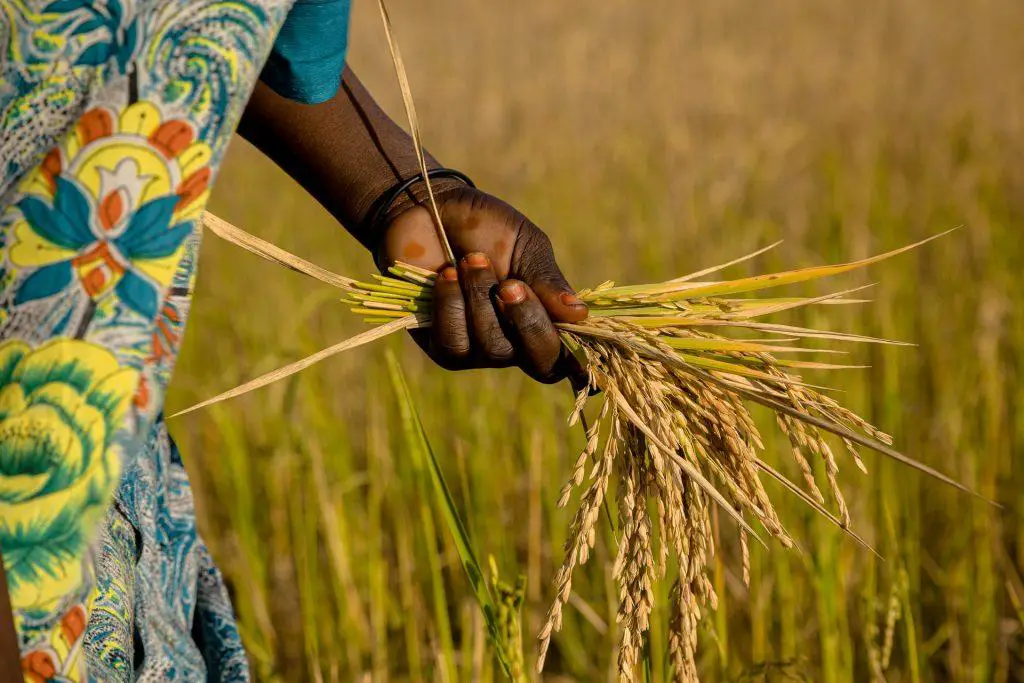- Nigeria has commissioned the large-scale Integrated Rice Mill to expand domestic rice production and achieve self-sufficiency.
- President Muhammadu Buhari says the move is in line with his government’s mandate to achieve food security and boost incomes.
- Nigeria is the largest producer of rice in Africa, producing about 8.44 million tonnes annually. It is followed by Egypt, Madagascar, Tanzania and Mali.
Nigeria has commissioned the large scale integrated rice mill as the West African country expands domestic rice production to achieve food security and boost incomes for millions of farmers.
President Muhammadu Buhari said the move aligns with his government’s objective of achieving food security and enhancing rice value chain. The new rice mill is located in Sheda, Kwali Area Council, within Abuja.
“We have witnessed the rapid increase in domestic rice production from the incentives given to farmers and processors over the period as a resolution of leveraging our potentials, producing what we consume and patronize local made products,” President Buhari said.
For the past eight years, President Buhari has been revamping Nigeria’s agriculture value chain. This has been through initiatives like the Anchor Borrower’s Programme, and the Grain Aggregation Centers. Mr Buhari hopes to turnaround the sector for the benefit of millions of farmers.
Due to these interventions, Nigeria’s paddy yield per hectare has increased to adequately provide the mills’ with raw materials.
Additionally, President Buhari encouraged farmers to invest in agricultural and rice value chains by using the available incentives. The President said agribusiness is vital in enhancing Nigeria’s food production.
The public-private partnership
Further, the Minister of State, Federal Ministry of Agriculture and Rural Development, Mustapha Baba Shehuri said the mega mill was one of the 10 integrated rice mills that President Buhari approved under the Public-Private Partnership (PPP) model based on the “build, operate and own”.
The Minister commended development partner, Ocean Glory, for their support in ensuring successful delivery of the mill, adding that its execution had acted as a catalyst for the speedy delivery of other mills in the pipeline in Adamawa, Bayelsa, Ekiti, Gombe, Jigawa, Kaduna, Kano, Niger and Ogun States.
He expressed optimism that the remaining nine rice mills would be commissioned soon.
On his part, the representative of FCT Minister, Secretary, Agriculture and Rural Development, Mallam Abubakar Ibrahim pointed out that the occasion marked a momentous step towards achieving self-sufficiency in rice production. The initiative will also be instrumental in transforming the agricultural industry for prosperity of the nation.
Read also: Final deal in the works for Tanzania’s delayed $40 billion gas project
”It is through this synergy that we have been able to establish the state outright mill equipped with cutting edge technology to process rice on large scale significantly reducing our reliance on imported rice and creating a sustainable supply chain for our domestic market,” Ibrahim added.
Rice farming and the resultant rice value chain is one of the most lucrative investments in Nigeria. Although the grain is classified as a cash crop, it is a stapple food and commercially significant cereal in the country. Africa’s most populous country consumes almost seven million tonnes of rice every year.
Nigeria third biggest importer of rice
At the moment, Nigeria is the largest producer of rice in Africa, producing about 8,435,000 tonnes annually. It is followed by Egypt, Madagascar, Tanzania and Mali according to the Food and Agriculture Organisation (FAO).
Ironically, Nigeria is also the third highest importer of milled rice in the world. Huge demand for the grain sees Nigeria import about two million metric tonnes of rice into the country annually.
The Rice Farmers Association of Nigeria says rice production over the past five years was the highest since 1999. Nigeria’s rice production hit nine million metric tonnes in 2021 from two million metric tonnes in 2015. The rise was attributable to policy shift that saw a ban on rice importation.











